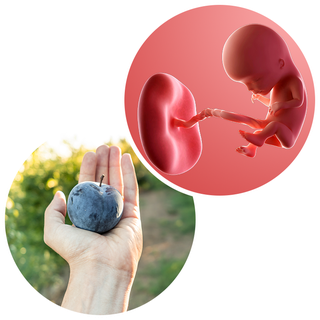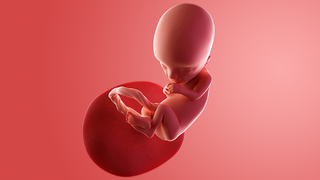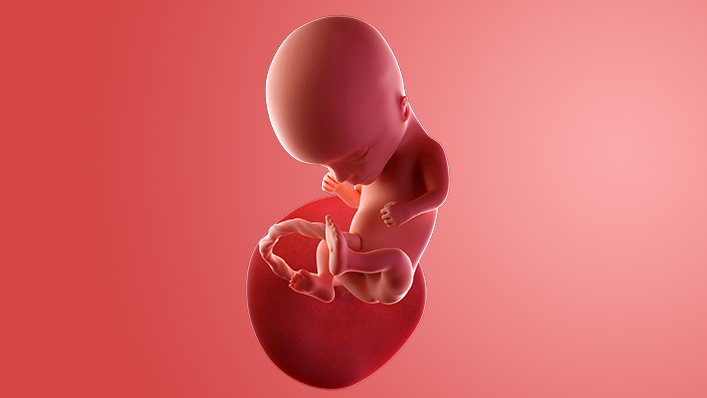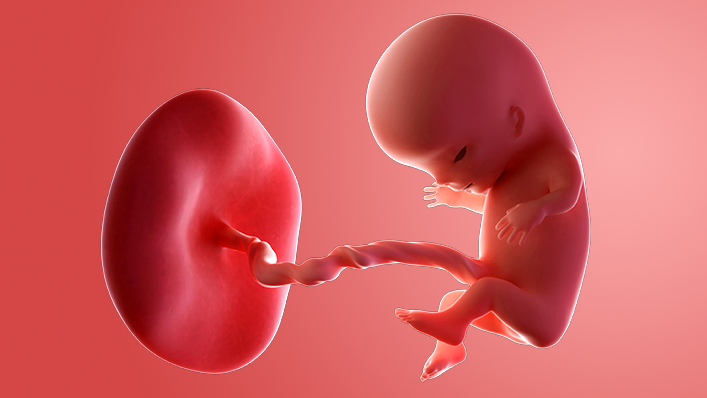Week 12
Your baby is now about the size of a plum, and hopefully you are starting to feel much better as the 1st trimester comes to a close.
For information on your pregnancy journey, sign up for regular emails tailored to your stage of pregnancy or baby's age.
What's happening in my body?
There's a good chance that the placenta is now feeding your baby, having taken over from the yolk sac, and once this happens your hormones will calm down a bit.
Your waist is probably thickening and your breasts getting bigger. As the sickness subsides, you may start to feel hungrier and worry if you're eating enough for you and the baby.
You may wonder if your bump should look bigger or smaller. There are so many factors that determine how big your stomach gets including:
- your hormones
- pre-pregnancy weight
- how many babies you've already had
- the strength of your muscles
Gaining weight and eating during pregnancy
Many women worry about how much weight they should put on during a healthy pregnancy.
Most mums-to-be will put on between 10kg and 12.5kg (22lb to 26lb), and that's usually after week 20. But some may not put on any weight at all.
You can find out more about weight gain in pregnancy on the NHS website.
Try to follow a healthy pregnancy diet – you do not need to eat more for the baby. When you enter the 3rd trimester in week 28 you can add another 200 calories a day to your diet – that's about 2 slices of wholemeal toast with margarine.
If you maintain a healthy weight, your baby is more likely to be a healthy weight too. Being overweight makes you more prone to conditions such as pre-eclampsia and high blood pressure.
Foods to avoid in pregnancy
There are certain foods you should while you're pregnant. Read about foods to avoid on the NHS website.
Early pregnancy symptoms (at 12 weeks)
Your signs of pregnancy may include:
- an aching stomach
- nausea
- mood swings
- a metallic taste in your mouth
- sore breasts
- indigestion and heartburn
- headaches
- dizziness
- new likes and dislikes for food and drink
- a heightened sense of smell
- a white milky pregnancy discharge from your vagina
- light spotting (see your doctor if you get bleeding in pregnancy)
- cramping, a bit like period pains
- darkened skin on your face or brown patches – this is known as chloasma or the "mask of pregnancy"
- greasier, spotty skin
- thicker and shinier hair
- bloating and the feeling of being bloated (read ways to cope with bloating on week 10's page)
What does my baby look like?
Your baby, or foetus, is now 5.4cm long from head to bottom, which is about the size of a plum.
The internal organs and muscles have grown, and the heartbeat can be picked up on an ultrasound scan. The skeleton is made up from tissue and hardening into bone.
The sex organs have formed, although most scans will not be able to tell your baby's sex until later.

Action stations
As you start to feel more energetic, you could go and visit local maternity units and try and think about where you would like to have your baby. You can always change your mind later.
You may already have ideas about how you want to give birth – this is known as your birth plan. Try and stay flexible at this stage – we'll come back to birth plans in future weeks.
Sexually transmitted infections (STIs)
Do you think you or your partner could have an STI? If so, get checked out, as this could affect your baby's development. Talk to your midwife or GP, or visit a sexual health clinic.
Long-term conditions
If you have a long-term health condition, then let your specialist or GP know you're pregnant as soon as possible.
Don't stop taking any regular medication without discussing it with your doctor first.
Want to know when the baby's due?
Use the NHS's pregnancy due date calculator. You'll get a more accurate date from your doctor or midwife when you have a dating scan (usually at 8 to 14 weeks).
More in week-by-week

Week 13 – the 2nd trimester
Week 13 marks the start of the 2nd trimester, which means you're now a 3rd of the way through your pregnancy and hopefully through the worst of your symptoms.
More in week-by-week guide to pregnancy


